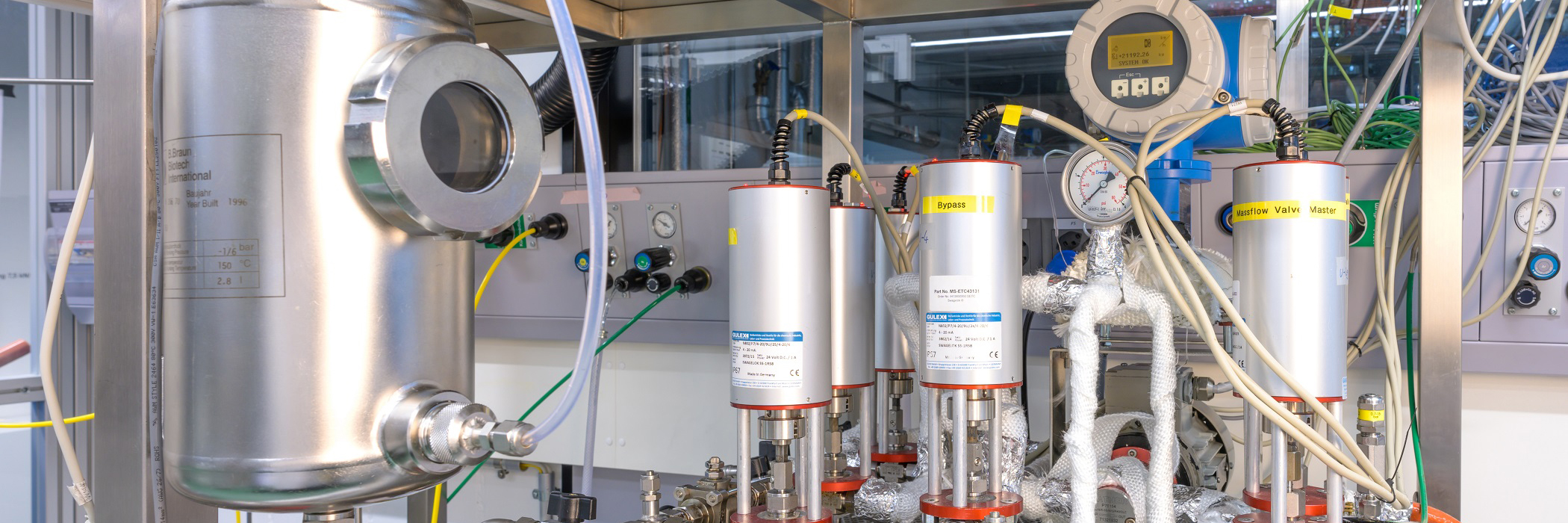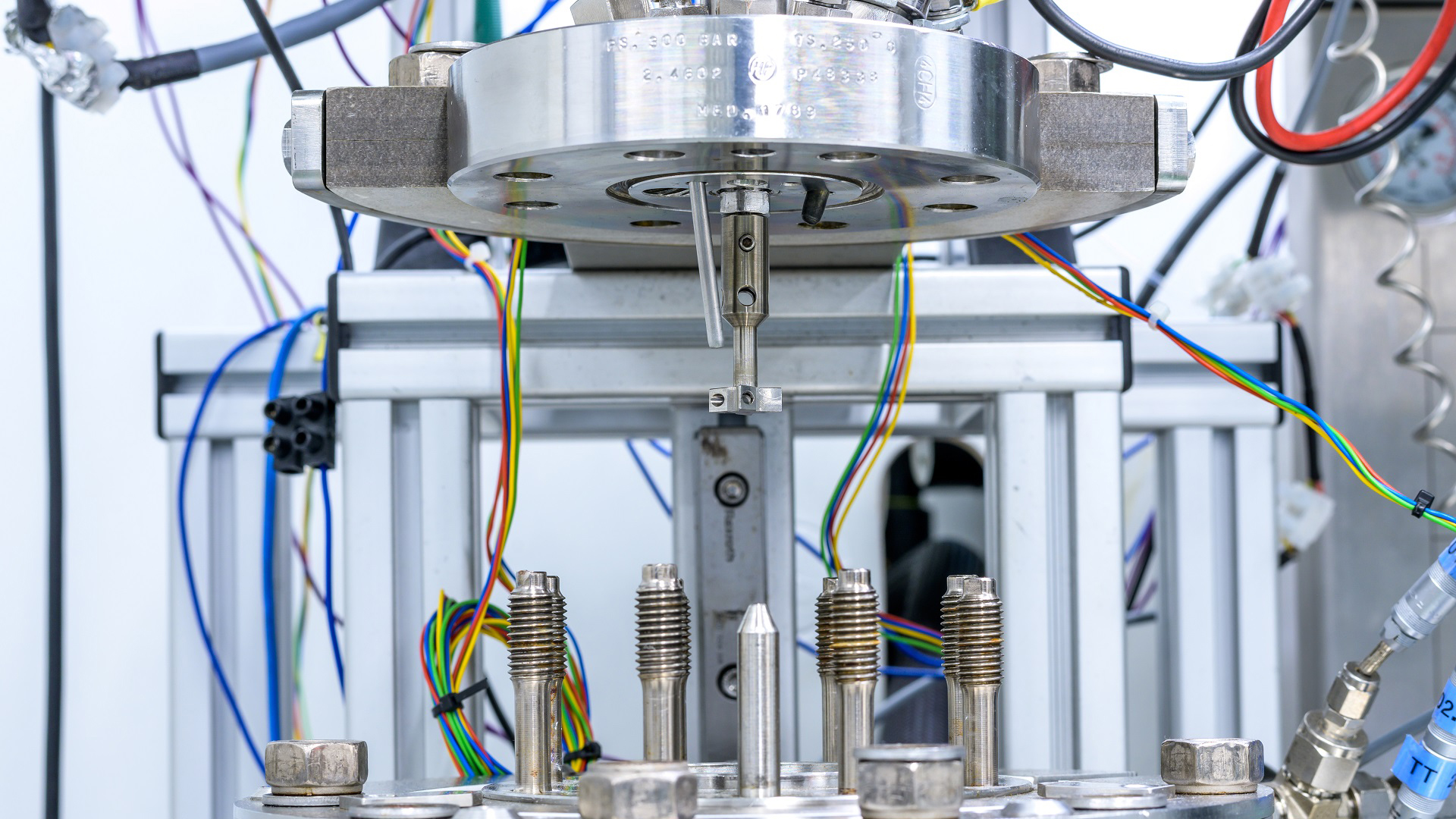Chemical Process Development and Process Reliability
Located on three floors in the PTC, the chemical pilot plant offers firms a test environment ranging from dosing to state-of-the-art separation processes.
Reactors are available for a variety of problems: a scale-down reactor for precise reaction modelling in the mixing tank; an explosion reactor for testing the thermal process safety of explosive reactions; and a loop reactor for heterogeneous catalysis on 3D printed structures.
Common industrial filtration, drying and distillation processes can be integrated into the pilot plant. These separation processes can be run continuously and are equipped with their own solvent regeneration and waste water neutralization systems. The most important thermal separation simulation techniques are also available.
An in-line analytical system monitors process parameters in each area and provides the basis for energy balances, environmental impact studies and further optimization simulations.
The latest process technologies prepare FHNW students for industry 4.0. They are shown, among other things, the most important elements of process development safety: reaction calorimetry, thermal decomposition, explosion pressure measurement, pressure relief and associated process modelling.
The Miniplant 4.0 association implements novel reactors and processes developed at the HLS, in cooperation with local companies, thus strengthening the FHNW’s role in the field of translational research.
- Scale-down reactor (reaction calorimeter) > You can find more information here
- Loop reactor
- Explosion reactor
- Differential Scanning Calorimeter (DSC)

